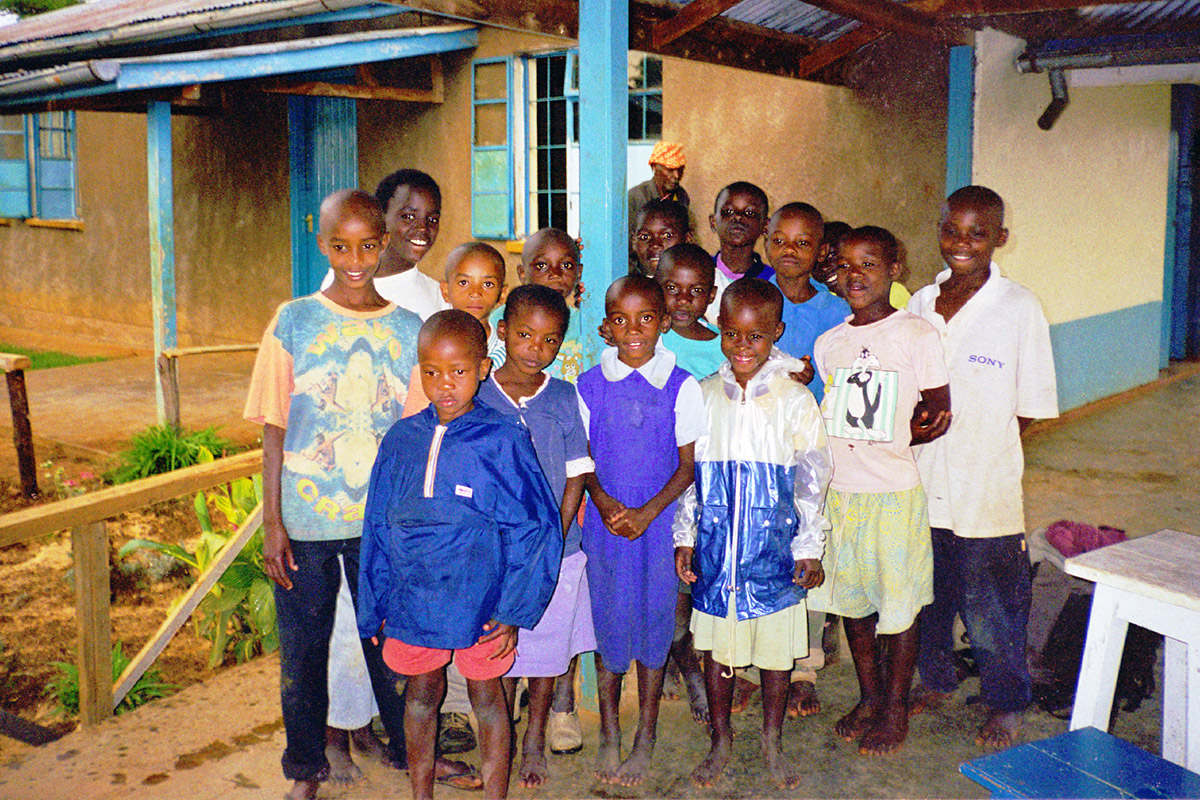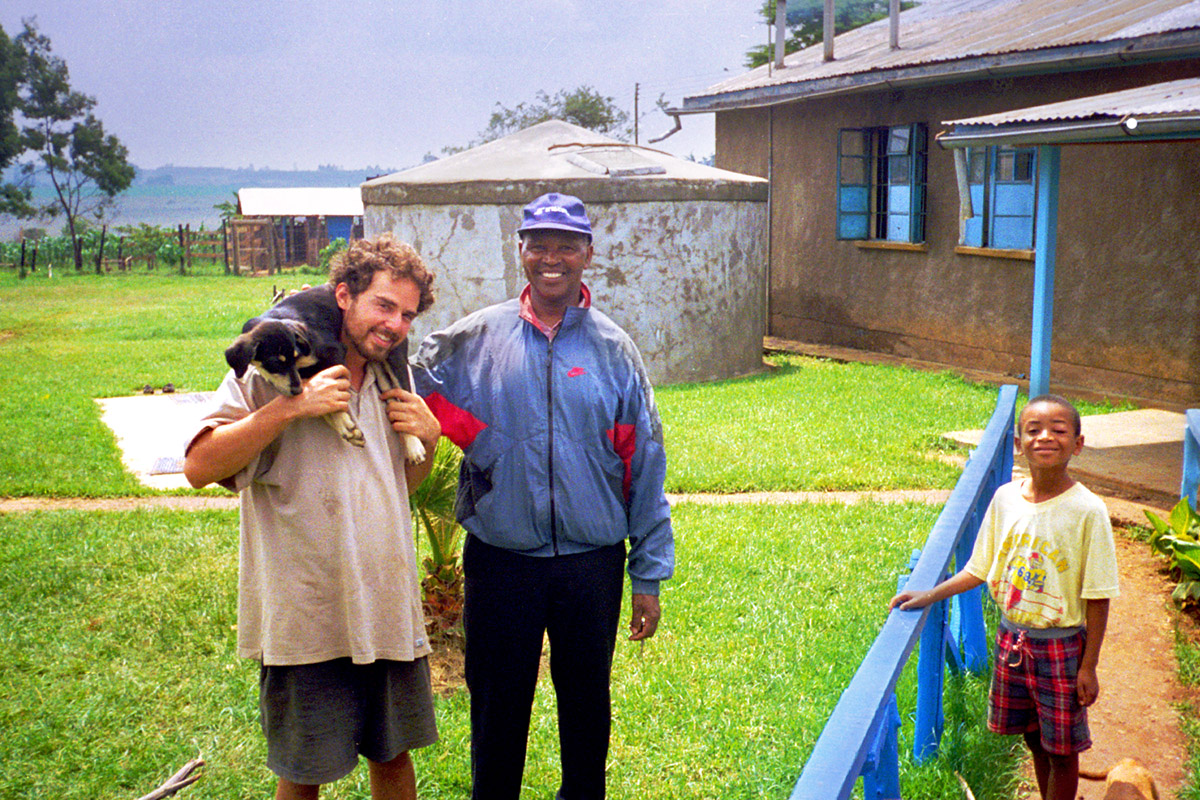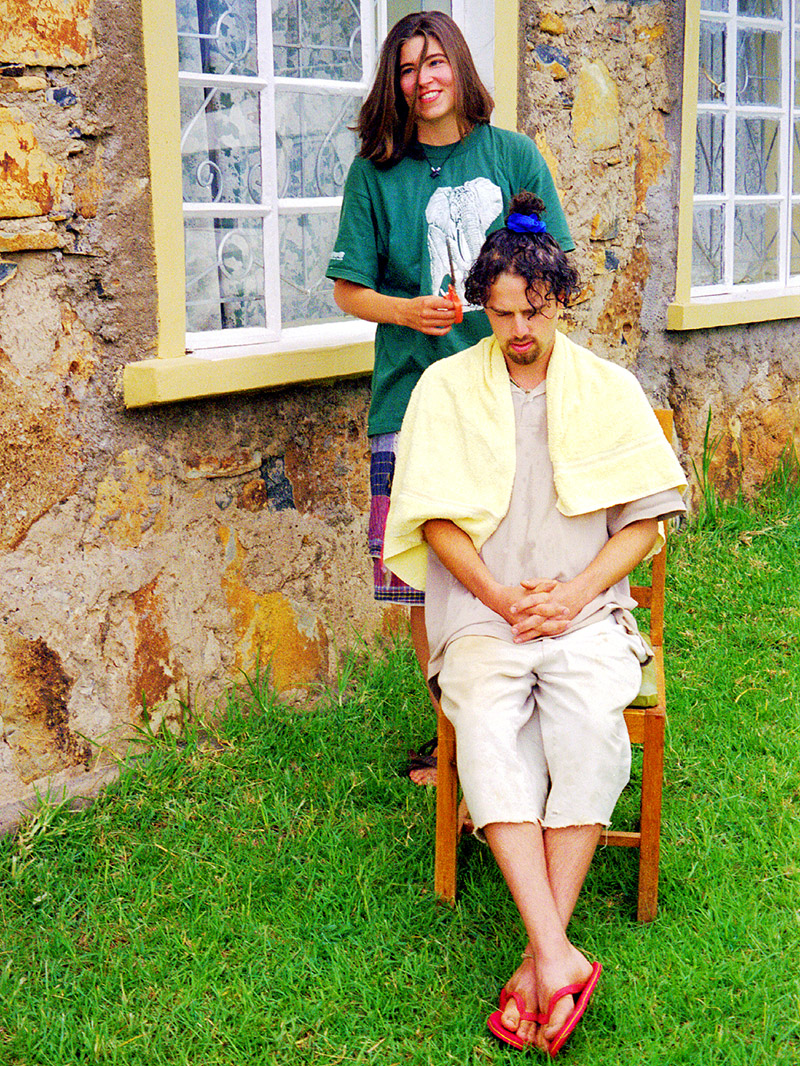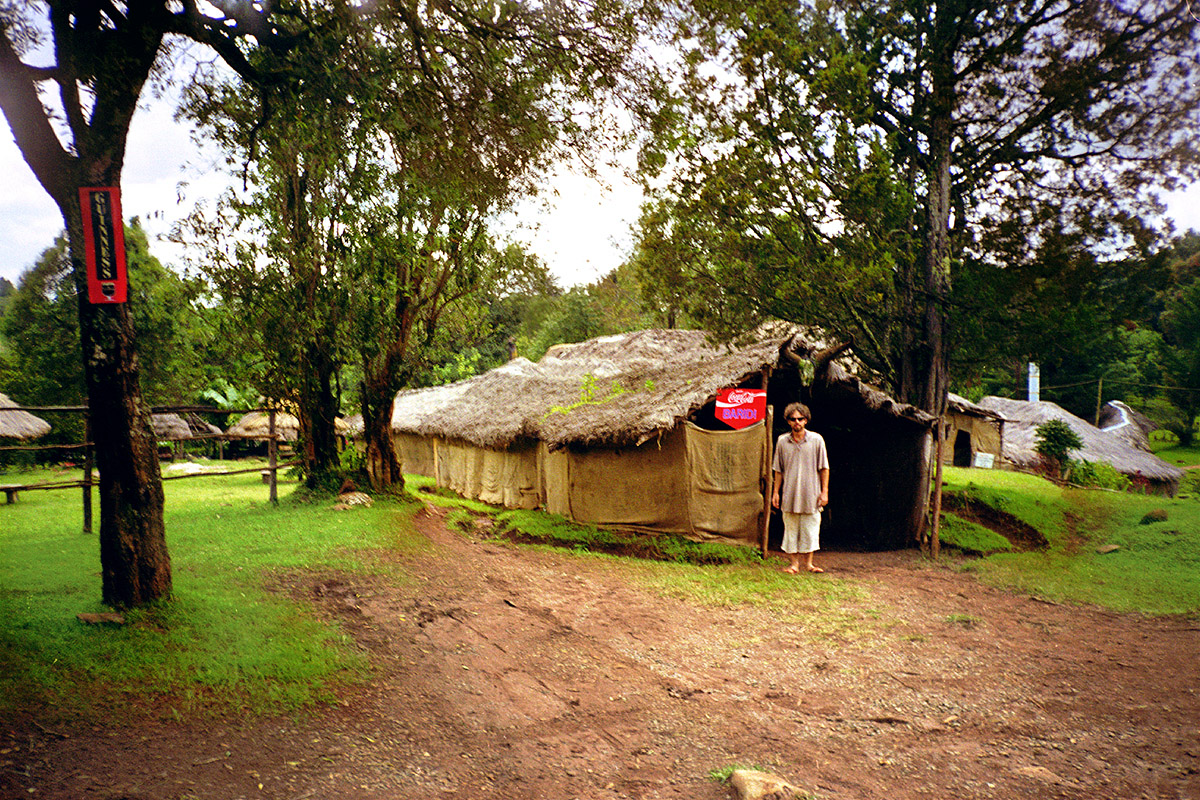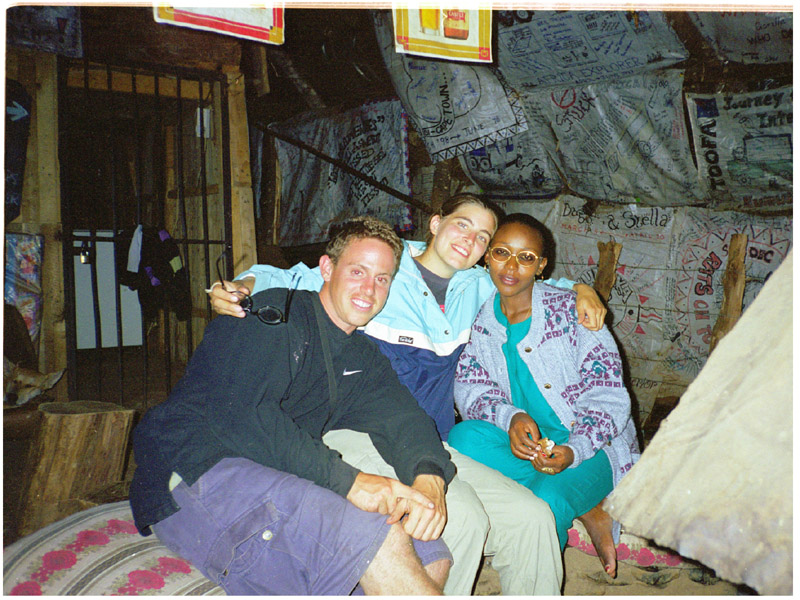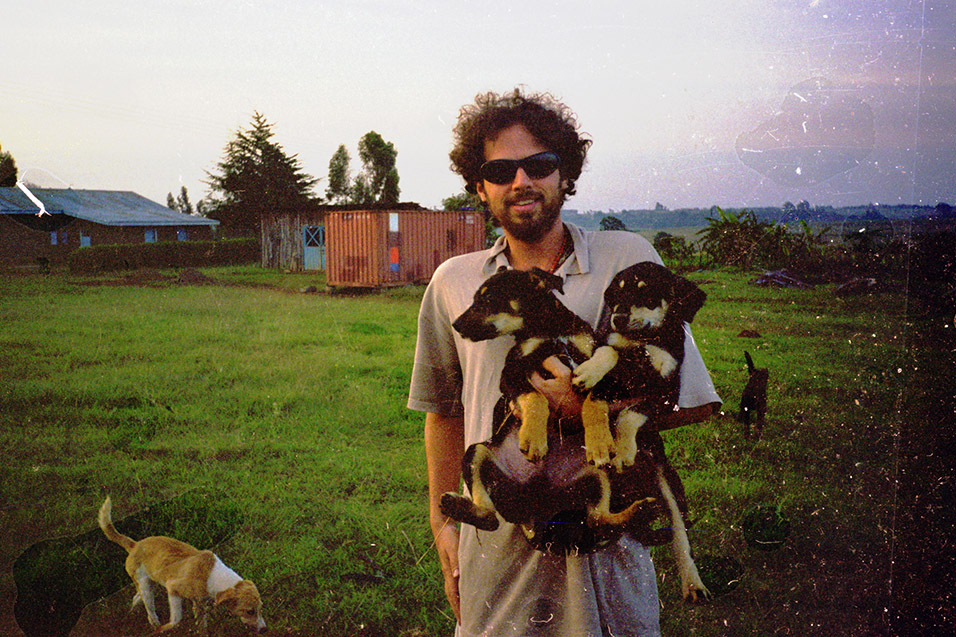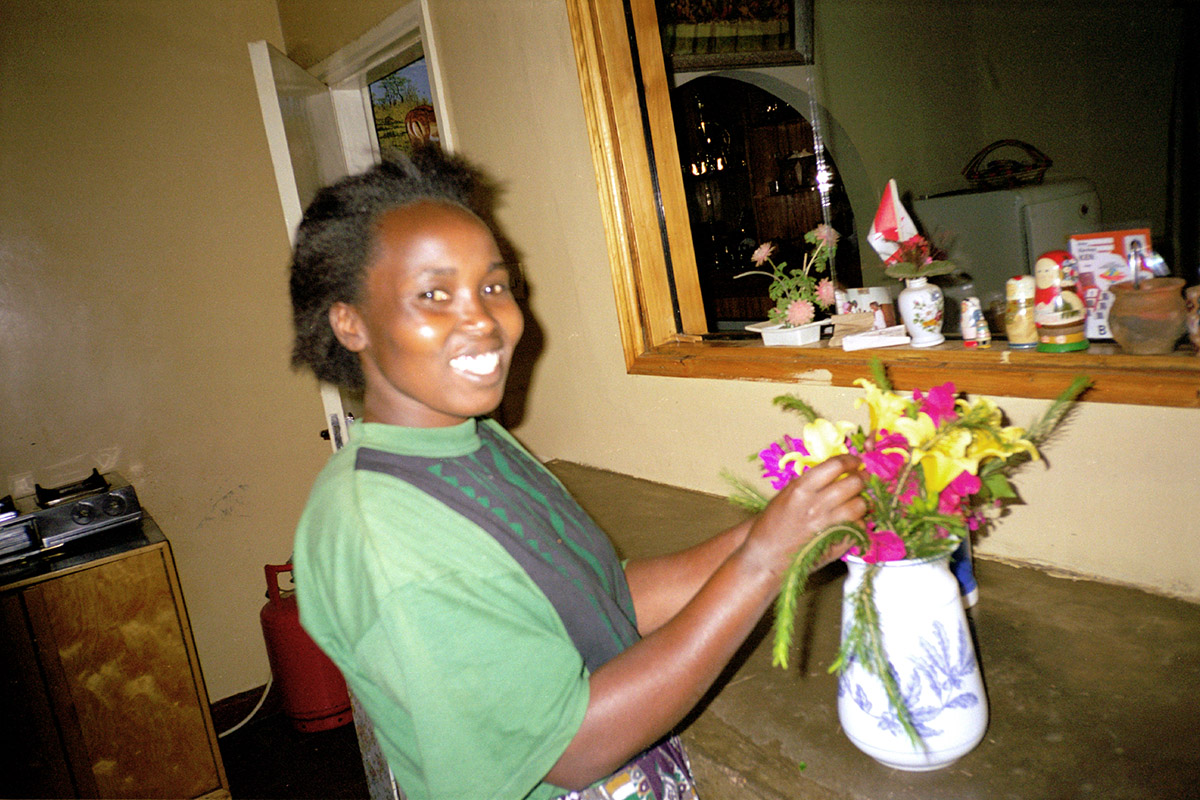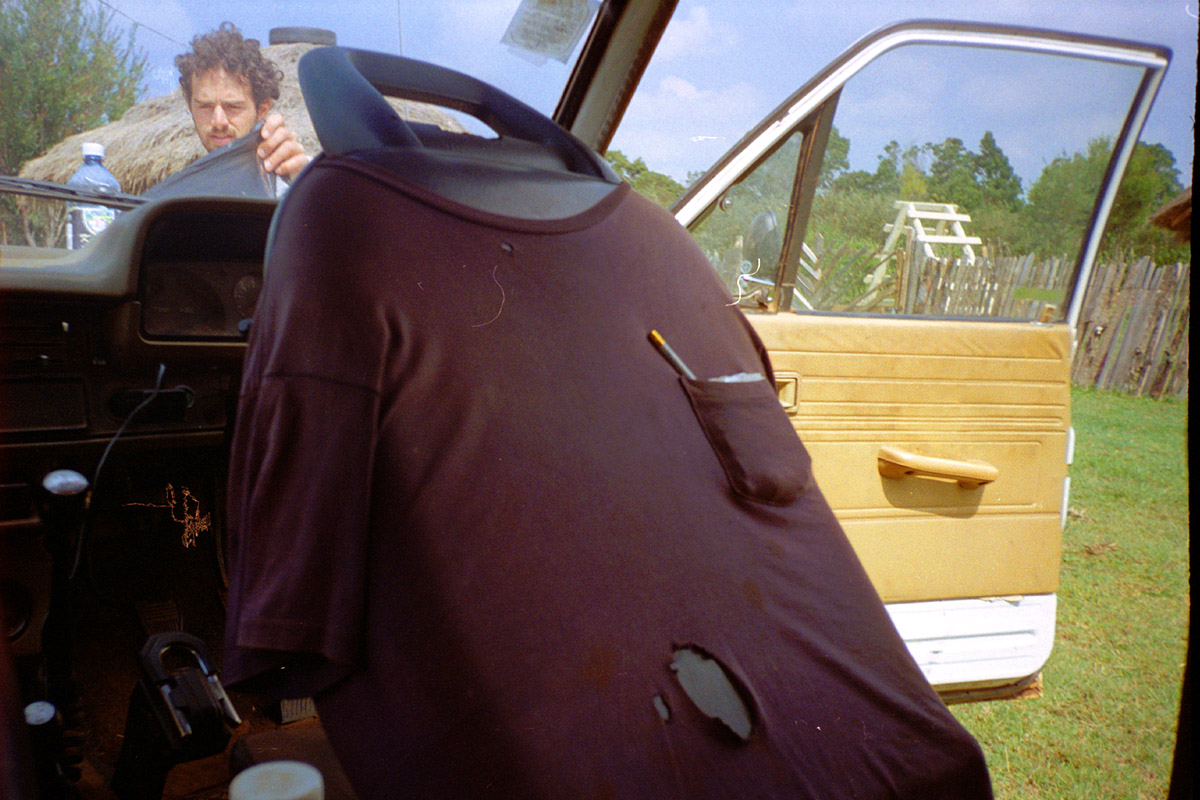Eldoret, Kenya
On the wall of a sun-splashed living room hangs a Daily Telegraph world map dotted with hundreds of red and yellow pins that fix the running ovals where Kipchoge Keino elevated a forgotten nation. But Kip Keino hurries past the map eager to share his life’s work.
Not the trophies or medals piled in a comer, but a gallery of photos of young Kenyan men and women whose lives he has touched. He sips tea through the gap in his bottom teeth, then softly recites their accomplishments.
“This one’s a doctor in Nairobi. She’s an accountant in town with three beautiful babies. These two are with the police. This whole row is studying at universities in the States,” he says, touching each of the photos.
Of late, everyone from Oprah to Hillary Clinton has invoked the African proverb that “it takes a village to raise a child.” For 30 years now, Keino has raised his own village of children. Before he was an Olympic champion, long after he became the measuring stick for African runners, Kip Keino was - and is - father to 68 abandoned or orphaned children.
That is why the pinned world map goes ignored; why he treats the hardware from his Olympic glory years like artifacts; why, despite the battered running shoes he wears, he says he runs now “only for my life.”
What matters to Keino is the freshly turned rows of tea leaves sculpted atop plateaus that cascade across this valley. The 200-foot well that pulls diamond-clear water on the wings of a windmill. The stone bunkhouses where tiny tennis shoes compete for shelf space with primary school math and English books.
Keino’s universe begins and ends on his farm, in his newly built 20- room compound with a library and chapel, amid his children. They call him and Phyllis Keino “Dad” and “Mom” ; they carry the legendary name.
He houses them, feeds, educates and loves them until they too join the photo gallery, becoming examples for the next generation of unwanted children who show up at his door. “My mother died when I was 3,” he explains. “I don’t want anyone else to grow up with that problem. I c&t help everyone, but I do what is within my ability.” Now 54, runner-trim beneath his baggy work clothes, an ever-present ball cap atop
his gray hair, Keino remains true to his calling. Just as the silver tea service attests to his coming of age in colonial Kenya, the toddlers and teenagers underfoot in the gardens echo his uncertain boyhood as a Nandi tribesman.
“If Kip never had made it out of the first round - had never won an Olympic race - he’d still be the world’s greatest Olympian ever for what he’s done with his life,” says 1964 U.S. gold meDalist Billy Mills, who has done his own share of charity work, bankrolling Native American and children’s charities.
But Keino did make it out of the first round and burst into the world’s consciousness with one of the gutsiest performances in athletic history. At the 1968 Olympic Games, Keino arrived in Mexico City a cop from a Third World country with little athletic history.
Keino suffered from gallstones, and doctors told him if he ran it might kill him. In his first event, the 10,000 meter, he was in the lead pack with two laps to go when he collapsed in pain and staggered onto the infield, Before the stretchers arrived, he scrambled to his feet and finished the race even though he had been disqualified. In the 5,000 four days later, he won the silver.
It was in the 1,500-meter showdown with world record holder Jim Ryun that Keino’s story became legend. Suffering agonizing pain, he finally conceded to doctors’ orders and remained in the village on race day. But as the start drew near, he became restless and boarded a bus, only to get stuck in a traffic jam.
Jogging the final two miles to the stadium, Keino arrived moments before the gun. He went out fast to neutralize Ryun’s vaunted closing kick. The American, in the midst of a three-year win streak, finished 20 meters back for the silver.
“In a week he went from a talented runner - known as a good guy - to a national hero. Like your Mickey Mantle,” explains Mike Boit, a 1972 silver meDalist who is now Kenya’s minister of sport. “He not only is the father of Kenya distance running, he put this country on the map. He’s our national treasure.”
Unlike The neck’s, Keino’s heroics didn’t dim once the stadium lights shut off - they burned brighter. He returned to the 1972 Games in Munich and won a gold in the steeplechase and a silver in the 1,500, but his role as father to the fatherless had already eclipsed the one as champion.
His friends on the police force continued to bring kids to his door. Kip and his wife, Phyllis, kept making room, even as they added seven of their own children. Keino found it hard to say no: “Sometimes their mothers died in childbirth and no one came for them. Others maybe were orphaned in traffic accidents. We hardly ever ask anymore.”
He wears the role of national hero lightly. In his battered Jeep, Keino bumps past the stadiums and streets named after him without acknowledging their existence. On a rutted street in town, he owns a sports/book/music shop, which serves as alumni hall for Kenya’s running greats.
Three-time Boston Marathon champ Ibrahim Hussein laughs with current 800-meter champ Joseph Tangele. Moses Kiptanui, the steeplechase world record holder, looks at cassettes. Keino sits in his office with three young runners reviewing strategy for an upcoming local meet.
The Keinos aren’t rich. For all the glory he’s brought to Kenya, Kip made only $20,000 in his career, and that was from a short-lived pro circuit in the early ’70s. But it was enough to purchase the farm, as well as 50 acres a half-hour away in the Nandi Hills where he grew up.
They run the farm and orphanage with the same effortless efficiency,”with which Kip gunned down rivals on the track. The compound comes to life before dawn with the coughs of children and creaks of two dozen bunk beds. The older boys join Kip at the milking bam, where bucketfuls are squeezed off to fill 40-plus glasses for the day, with enough left over to sell to a local dairy.
Everyone has a job. Tiny girls stagger from the gardens to the pantry toting bushels brimming with corn, green onions, cabbage and potatoes. The kitchen rattles and clanks as a knot of teenage girls swirl over banquet-sized pots of vegetables and meal. One moment the stone courtyard is quiet and empty, the next it bustles with boys and girls of all sizes, smoothing blue uniforms as they disappear across the green to school.
“My wife is the one who has organized and made this work,” Keino says. “The land is not mine. God has given the land, but I make sure the land provides for us.” Fortunately, good begets good and church groups from around the world have heard of the Keinos’ work. English craftsmen, American pastors, many more have come to the valley to hammer and plaster, dig and hoe. Christian relief organizations pitch in; others send $1 0 or $20 here and there.
It’s a good thing. Sometimes the windmill gets to limping or a generator goes down. Clothes fall apart at the bottom of the hand-me-down line. More than 20 of his adopted kids, away at school, need tuition.
“Once they get knowledge they become part of society,” says Keino, who did not go beyond high school.
Of his seven biological kids, six have or will have earned degrees in the United States, including Martin, who was an All-American runner at the University of Arizona, and Patrick, who is currently an All-American at Arizona. The youngest boy attends high school in New Jersey.
“Growing up, my father never pushed us to run. I didn’t start until I came to America for high school,” says Martin Keino. “But he encouraged us to get an education and to be good brothers and sisters to all the kids who share our home. If I never had run, he would have been proud of me.” Keino doesn’t take time to reflect on his legacy. Trailing him as he sprinkles feed to the chickens are Laura, 2, and Chamatia, 4. The girls arrived here like most others - a police officer found them on the street, unable to move because of pneumonia. When no one claimed them from the hospital, the staff called Kip and Phyllis.
“I hear the runners talk about me,” is about all he concedes. “For some reason, they all want to imitate Kip Keino.
Keino remains a hero
By Joe Drape, The Atlanta Journal-Constitution
